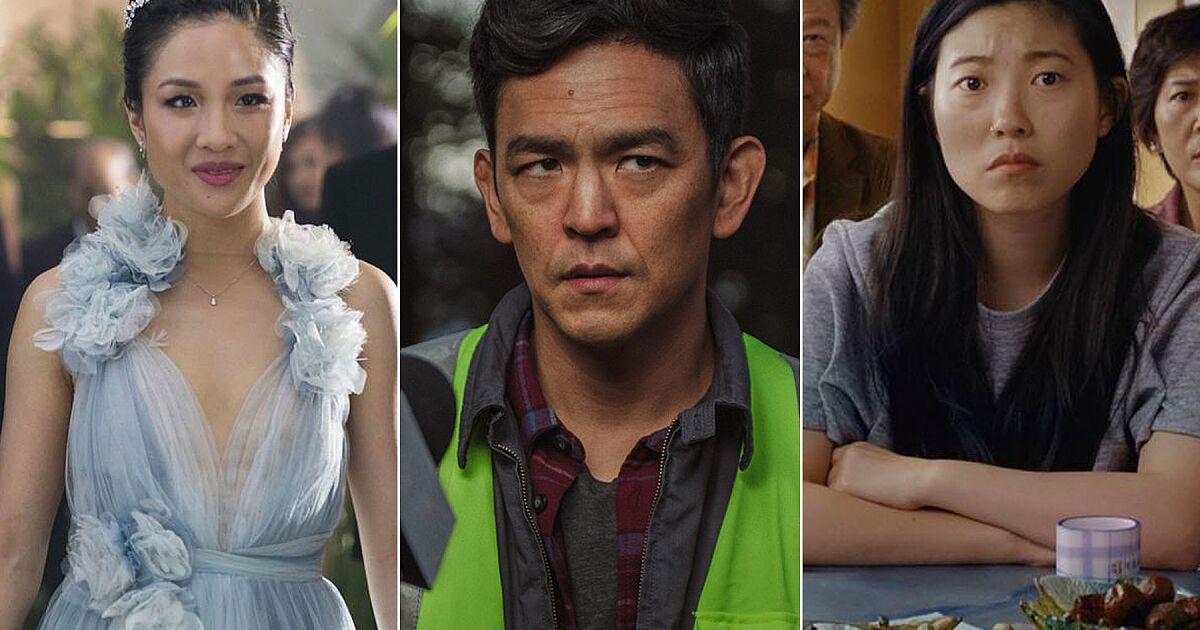The record number of Oscar nominations for actors of Asian descent, including Malaysian Michelle Yeoh, and the lead in nominations (11) for the Asian-American film “Everything Everywhere All at Once”, have this edition spoken of as the most Asian in history, although still under the prism of Hollywood.
It took nearly a century for a second Asian performer to be nominated for Best Lead: Yeoh could become the first to win the coveted statuette on March 12, after Indian-born Merle Oberon was left at the gates in 1935. for her role in “The Dark Angel”.
With Yeoh, 60, who has been very candid about the discrimination she’s faced fighting for roles in Hollywood – “It shouldn’t be about my race, but it’s been a battle,” he said. she told Time magazine, which cast her. of the Year-, her co-stars Ke Huy Quan and Stephanie Hsue are vying for the award.
Ke Huy Quan, an American of Vietnamese origin, has had no fewer ups and downs than Yeoh in his career: the favorite for the Oscar for best actor in a supporting role, who came to the big screen with Indiana Jones films and in “The Goonies” (The Goonies, 1985), walked away from the seventh art for a season and commented on how he thought another opportunity would not present itself.
At 32, Stephanie Hsue, the daughter of Quan and Yeoh in the film, and the real descendant of a Chinese immigrant family in the United States, is in competition for the prize for best actress in a supporting role with, among others , Hong Chau, Vietnamese-American. , for her acclaimed performance in “The Whale.”
To the success of “All at once everywhere”, the film by “The Daniels”, Daniel Kwan and Daniel Scheinert, which depicts the transformation of a woman (Yeoh) from a family of Chinese immigrants in the United United as a heroine who must save the world, with a predominantly Asian cast, other nominations with Asian ties are added.
Japanese-British Nobel Prize for Literature Kazuo Ishiguro is competing for the prize for best adapted screenplay for “Living”; Naatu Naatu, from the Indian film “RRR”, is in the running for the best original song; and Chinese-born director Domee Shi could win Best Animated Film for “Red” (Turning Red).
YEARS OF EVOLUTION AND PRECEDENT OF ‘PARASITES’
This is a very significant Asian representation, which follows a few years where more diversity has been seen in the mecca of cinema, after the Oscar for best film for South Korean “Parasite” (Parasite) in 2020 and the award for best international film for the Japanese “Drive My Car” in the last edition.
There is also a noticeable evolution in the type of roles and themes assigned to Asians in Hollywood, before almost limited to war films, and after the controversy over decisions like choosing Scarlett Johansson to bring a Japanese character to life in the film. inspired by the cult manga “Ghost in the Shell: The Soul of the Machine” (Ghost in the Shell, 2017).
But from the Asian film industry, the real Asian factor of these Oscars is questioned, especially since “Everything at the same time everywhere” is still an American production aimed at American audiences, with Yeoh as the only actress. born in Asia and with a career forged on this continent.
There was also hope that there would be an Asian film nominated for best international film, looking at, among other things, “Decision to Leave”, by South Korean Park Chan-wook, decorated as best director for said film. at the last edition of Cannes. .
THE INFLUENCE OF NETFLIX
Raymond Phathanavirangoon, a Thai film producer and director of the Southeast Asian Fiction Films Laboratory (SEAFIC), told EFE that, more than a trend in itself, the inclusion of more and players with ties to Asia stems in part from the universalization of platforms such as Netflix.
“The only trend now is that people are less afraid of subtitles because of Netflix and the success (of series like the South Korean) ‘The Squid Game’, which led to films like ‘Parasites ‘ (by also South Korean Bong Joon-ho) to be more accessible to a wider audience,” he says.
From Asia, one still perceives the success in Hollywood of films like “Parasites”, whose idiosyncrasy is fundamentally South Korean and whose plot takes place in South Korea – unlike “All at once everywhere”, which takes place in the United States .UU .-, is the exception and not the rule.
Nevertheless, the awards already received, and those to come, intended for “All at once everywhere”, were seen as an opportunity to claim more space and acceptance for the Asian community in Hollywood.
“(The awards) show that we can tell our stories on our terms and stand up for something as simple and important as our real names,” said Michelle Yeoh, who adapted her real name, Yeoh Choo-Kheng, to make his path. Hollywood.

